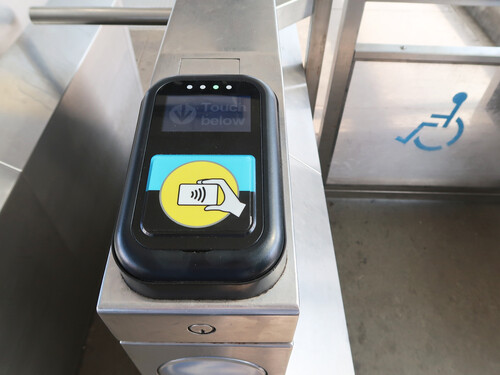Did You Know?
Low-cost CTA and Metra passes should be made permanent

The CTA and Metra’s lower priced daily passes have saved riders money while encouraging more people to ride transit.
Now, as the agencies develop their budgets for 2022, these discounts should be made permanent to help our region’s transportation network be more equitable and sustainable.
The CTA launched low-cost passes on Memorial Day this year and recently extended them through November 25.
- CTA 1-Day Pass: $5 (down from $10)
- CTA 3-Day Pass: $15 (down from $20)
- CTA 7-Day Pass: $20 (down from $28)
Any further extension will require action from the CTA board.
Similarly, Metra launched a $10 all-day pass in June 2020 and recently extended it through December 2021. This simple, low-cost fare is already used by one-third of Metra riders. For most trips, the pass costs less than two one-way fares.
WHY LOW-COST TRANSIT PASSES ARE NEEDED
These more affordable passes help bring back to transit people who may have stopped riding earlier in the pandemic. Research in cities across the U.S. and around the world shows public transit systems are not a major source of COVID spread.
For people currently riding, the passes encourage them to ride more often compared to when they were paying per trip. This helps reduce the likelihood they’ll drive or hail a car.
Even more importantly, for people who continued to ride transit throughout the pandemic, it saves them money that can then be spent on other things. Transit riders during COVID are disproportionately low-income and Black and Brown Chicagoans — especially bus riders.
Cost savings from lower fares can improve quality of life for many transit riders and help boost the entire regional economy.
Active Trans launched our Fair Fares campaign in 2019 to fight for a more equitable fare structure across the region. These affordable passes are signs of progress as we continue to fight for other changes like discounts for low-income riders and free fares for youth.
DATA SHOWS PASSES ARE WORKING
Initial data from the discounted CTA passes confirms the passes are working. Twenty percent of survey respondents who purchased passes said it got them riding transit again. Fifty three percent said they rode transit “a lot more” because of the passes.
The one-day, $5 pass has proven particularly popular. Sales are up 300 percent over previous levels and much of that growth comes from South and West Side bus riders. This option is especially appealing given the simplicity of the fare structure and low upfront cost.
Still, more than two-thirds of CTA riders pay per trip, rather than purchasing a daily or multi-day pass. There’s lots of room for growth and CTA should step up its marketing of the passes to reach more of the riders who could benefit.
WHAT NOW?
The CTA and Metra boards should vote to make these more affordable passes permanent as part of the agencies’ 2022 budgets.
Transit is a public good. Its benefits to the region’s racial and social equity are essential to its value. Its central role in reducing carbon emissions from transportation across the Chicago area is critical to building a cleaner, more sustainable future for all residents.
Agencies shouldn’t be incentivized to chase ridership and revenue at the expense of delivering affordable, reliable service to everyone, especially those living in the highest need areas. This requires changing federal and state funding formulas and increasing the overall subsidy for public transit.
Making low-cost transit passes permanent would be a key step forward as we continue to fight for these structural changes to our transit system.
Graphic Credit: CTA
Make a Donation
Your tax-deductible donation supports the important work that Active Trans does throughout the region
